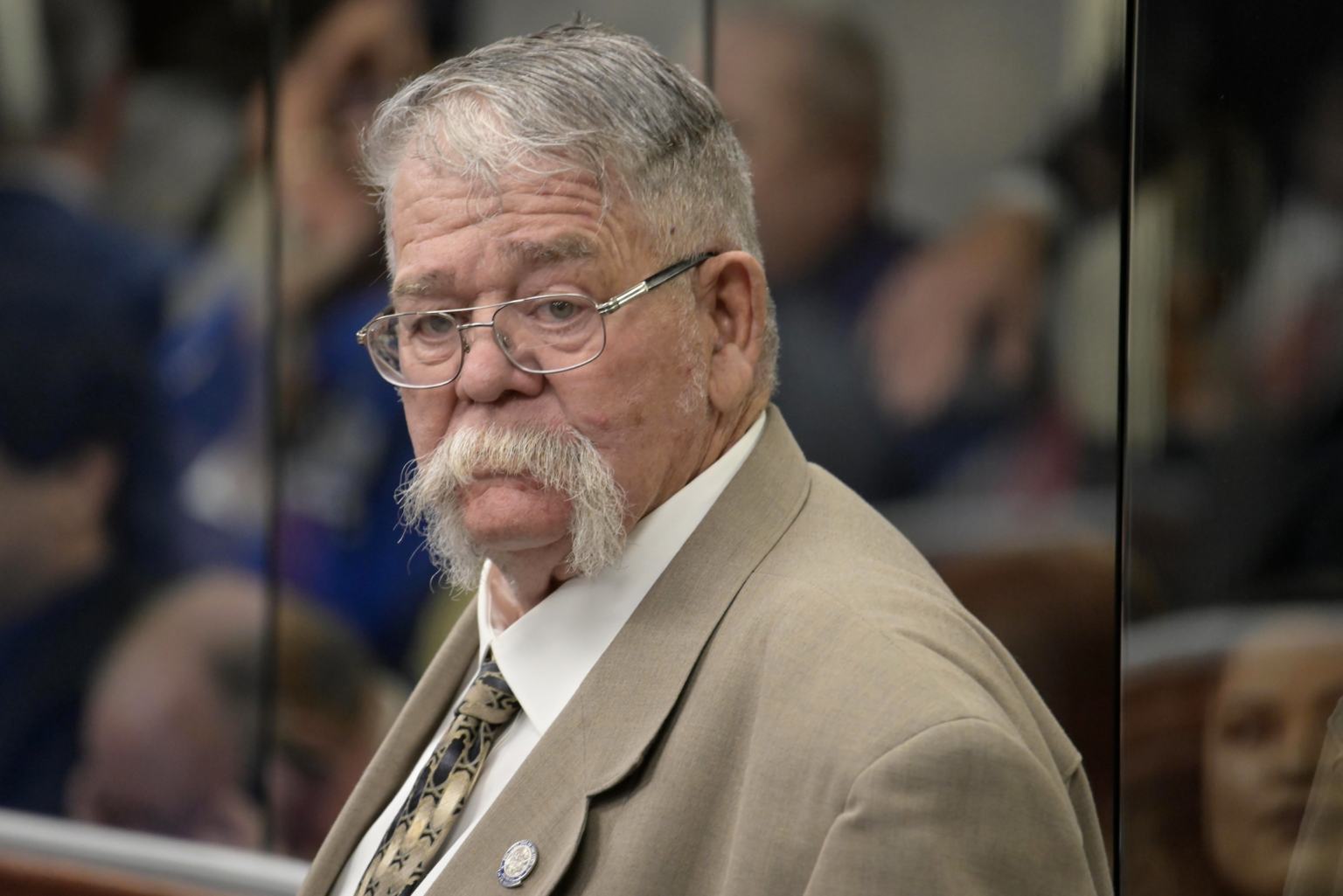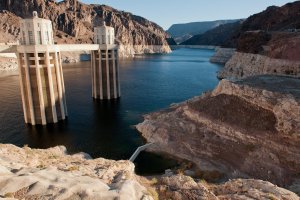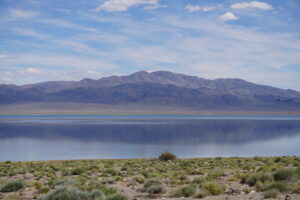6:30
News Story
Lawmakers tackle groundwater depletion in conservation bill
Although Nevada is the driest state in the nation, the state is lined with an intricate network of groundwater aquifers, and with a megadrought draining water reserves, lawmakers are now pushing for a bill that would buy out water rights.
Lawmakers say the proposed legislation, SB176, would help address and avoid conflicts over groundwater by purchasing rights from those willing to sell.
If passed, the measure would allow the state to buy water rights, similar to water markets in other states, and retire those rights rather than depleting groundwater through unfettered use.
Under the bill, a state account would be established to purchase and retire water rights in groundwater basins where there’s not enough water available to serve all vested water rights and claims. The program would be administered by the Nevada Department of Conservation and Natural Resources.
In several parts of the state, significantly more groundwater is extracted than is returned to aquifers each year, leading to declining water levels. Nevada has committed water rights for 1.5 times the ~2 million acre-feet of available groundwater. About 56 of the state’s water basins are currently over-pumped, according to the Legislative Counsel Bureau’s Research Division..
Declining groundwater levels can increase energy costs for pumping, damage spring-dependent ecosystems, decrease stream flows in nearby rivers, and eventually make irrigated agriculture infeasible.
The bill is sponsored by state Sen. Pete Goicoechea, a Republican lawmaker who represents several rural counties. In a rare moment of interests crossing the aisle to join forces, the bill has also attracted the support of several conservation groups.
“I hope this is something we can all get behind and recognize that we are over-appropriated, over-pumped, and we’ve got to do something about those water rights,” Goicoechea said, during a hearing on the bill Tuesday.
Goicoechea emphasized that the biggest barrier to the bill is funding. A program to purchase water rights in the state would require $5,000,000 from the State General Fund for additional staff and administrative costs. Where that funding will come from is dicey, Goicoechea said.
“I don’t know where we’re going to generate all the money from,” Goicoechea said. “But it has to be done.”
The bill is now headed to the finance committee, where lawmakers will decide whether to fund the bill or by how much.
“Hopefully we can get a few dollars to fund it and bring it forward,” Goicoechea said.
While the bill has moved through the legislature with plenty of collaboration and support from both lawmakers and stakeholders, water as a general issue is heated. The bill has gone through several revisions with lawmakers and conservation groups.
Earlier drafts of the bill had previously concerned conservation groups, like the Great Basin Water Network, who worried the bill would only result in the retirement of “paper water rights,” meaning legal rights to water that only exist on paper due to decades of overallocation. But after a round of revisions the bill has been worked into a bill with broad support from often clashing interests.
“This is a good water bill and those are rare,” said Kyle Roerink, the executive director of the Great Basin Water Network.
And while the idea may seem simple, Goicoechea stressed the complexity of the issue. Increasing drought and the depletion of groundwater means water managers in the state will start curtailing junior water rights whether holders like it or not, said Goicoechea.
“Some people are looking at this solution like a golden parachute, well it’s not. It’s a lifeline,” Goicoechea said. “You’re looking at water rights that are going to be curtailed and this gives you an opportunity for a softer landing, but it’s going to be ugly. You’re going to be landing on a feather, not a pillow.”
In a hearing last month, Jeff Fontaine, the executive director of the Central Nevada Regional Water Authority, told lawmakers the rural water agency has long supported the voluntary surrender of water rights. However, he warned that the bill won’t have a significant impact unless there are incentives to voluntarily surrender.
“We all know that bringing Nevada’s over pumped basins into balance is not going to be easy,” Fontaine said. “Establishing a state program for the voluntary retirement of water rights would be an important step in this effort to bring over pumped basins back into balance and help those water right holders and communities.”
Updated to clarify GBWN’s support of the bill.
Our stories may be republished online or in print under Creative Commons license CC BY-NC-ND 4.0. We ask that you edit only for style or to shorten, provide proper attribution and link to our website. AP and Getty images may not be republished. Please see our republishing guidelines for use of any other photos and graphics.




